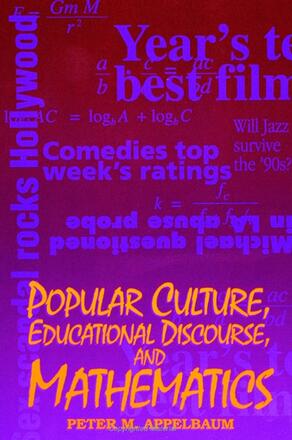
Popular Culture, Educational Discourse, and Mathematics
Alternative formats available from:
Description
This groundbreaking book analyzes contemporary education discourse in the light of curriculum politics and popular culture, using sources ranging from academic scholarship to popular magazines, music video, film and television game shows. Mathematics is used as an "extreme case," since it is a discipline so easily accepted as separable from politics, ethics or the social construction of knowledge. Appelbaum's juxtaposition of popular culture, public debate and professional practice enables an examination of the production and mediation of "common sense" distinctions between school mathematics and the world outside of schools. Terrain ordinarily displaced or excluded by traditional education literature becomes the pendulum for a new conversation which merges research and practice while discarding pre-conceived categories of understanding
The book also serves as an entertaining introduction to emerging theories in cultural studies, progressively illustrating the uses of discourse analysis for comprehending ideology, the implications of power/knowledge links, professional practice as a technology of power, and curriculum as at once commodities and cultural resources. In this way, Appelbaum effectively reveals a direction for teachers, students and researchers to cooperatively form a community attentive to the politics of curriculum and popular culture.
Peter M. Appelbaum is Assistant Professor of Curriculum and Instruction at the William Paterson College of New Jersey.
Reviews
"The book deals with important and far-reaching issues in a way that is original, stimulating, and very accessible; it succeeds in linking widely divergent fields of study—math education and cultural studies—in a way that provokes fresh questions and rethinking of received ideas. A considerable strength of this book is that it's a lively, engaging work, at once playful and serious. While it is theoretically sophisticated, it is not freighted with jargon and pretentious rhetoric. " — Paul Farber, Western Michigan University
"There is a wonderful combination of critical theory and sources drawn from popular culture. The approach is lively, while at the same time insightful. The book is an academic page-turner. Provocative and groundbreaking, this book opens up a significant line of inquiry for mathematics education—an important contribution to the field. " — Eugene F. Provenzo Jr. , University of Miami